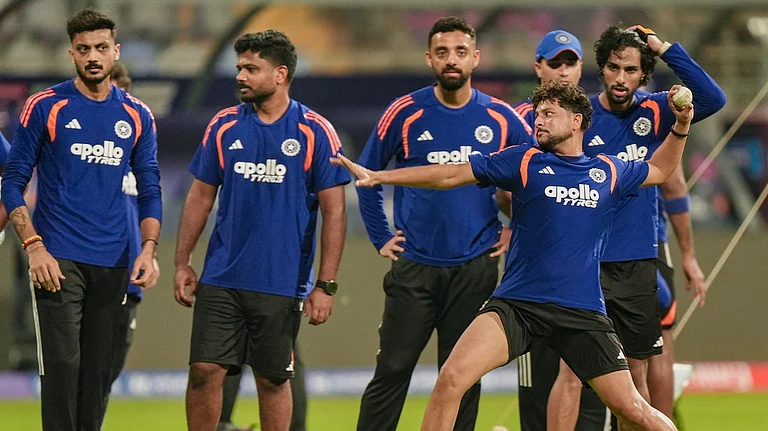THE rain gods have been kind to the desert this year. After three years of insufficient rainfall, this year the showers have been adequate for most of the area. There is greenery in evidence across the landscape, whether it is in the crops, the grasses or just a bounce in the colour of the various plants and trees. Even Shergarh, a perennial loser when it comes to receiving rains, can be classified as adequate. Most of the fields in the constituency are covered with the traditional grains that are sowed this time of the year - bajra, jowar or moath.
This was not so when I arrived at this time last year for my maiden election bid. Not only was it much warmer but also while covering the thousands of kilometres during the campaign, a looming drought was very much in evidence. This is what I tried to explain to a Delhi journalist when she came to cover the drought in May this year, "The drought happens when the rains fail, not when the summer arrives." Droughts happen in August when it becomes apparent what the status of the rains is. And it happened this way for the last two years but then, Barmer being so remote from Jaipur, it took a while for the capital to wake up to the reality. In fact, Jaipur awoke only after the drought became the favoured story of the month in Delhi.
In August 2000, the rains have covered the entire constituency but for two major swathes of land, Sankda panchayat samiti and the Ramgarh areas of Jaisalmer. And they are going to suffer a drought. "Jaisalmer district has received sufficient rainfall," said a local official. Being good at tabulating from the whole and not the parts that make up the totality, he was simply going by the figure for the entire district. And that way he has to be correct, for Fatehgarh, at the southern end of the district, was flooded. The officials at the tehsil headquarters said they had not seen such rains for years. They must be correct for when I was driving from Bisu to Shiv there was the evidence from Fatehgarh. The road had been damaged, there was water lying in patches and the older amongst those I asked said the water flowed along what had once been rivers many years ago. But then rivers in this part of the world are purely seasonal, appearing only when the rains are kind. And the same holds true for relief measures when the rains dont appear.
He must remain unnamed for the time being but all that I can say is that he is excruciatingly poor. In English he would be termed as belonging to a scheduled tribe but in Barmer he is one among the thousands who hoped to eke out an existence during the drought relief measures that were launched before the rains this year. His village too must remain unnamed for the time being, for after all it was courtesy the sarpanch that this man found his name in the muster roll for the local relief measures. The junior engineer from the Public Works Department was allowed to take up to 80 labourers for the reservoir relief project and the selection was entirely the prerogative of the village sarpanch. He is a big man around here and in a drought year even more so, especially when all hopes of livelihood rest on the power of his rubber stamp.
So it was on a blistering May afternoon that I came across this poor man. In fact, he came across the road, which by then had some puddles of tar on it, and told me that he refused to accept the weekly payment being made for the relief measures. Seeing my surprise, he said, "I may be poor but I have some self-respect and cannot accept Rs 12 as my daily wage for all the effort that I have been putting in. That is not sufficient to even buy grain for my family." The surprise in such cases can only be replaced by dismay and anger. The crowd swelled. The names were collected, the payments made recorded and the local officialdom confronted.
"What can I do when I have been given a fixed budget and told to register a certain number of labourers and at the same time have to complete an assigned project? I also have the authority to pay them according to the progress of work they register," said the paying authority. This is where the nexus between the sarpanch and the junior engineer comes in, for the favoured ones remain at home even though they are marked present on the muster roll and those few who are present cannot complete the work. So the progress of work, as calculated by the junior engineer, is slow and hence payment cannot be made. From other parts of the district, reports of payments as ridiculous as Rs 7 have come in. The collector has ordered a review of the payments made and there is still a chance that those underpaid will get their dues. For until then the poor man must remain unnamed, lest the sarpanch targets him and the junior engineer still refuses to recognise the worth of his labours. Then there really will not be any relief possible in a drought.
(The writer stood for elections as the bjp candidate in Barmer, Rajasthan. He is presently working full-time in the constituency and will be writing a fortnightly column on life and development issues in Barmer.)


















